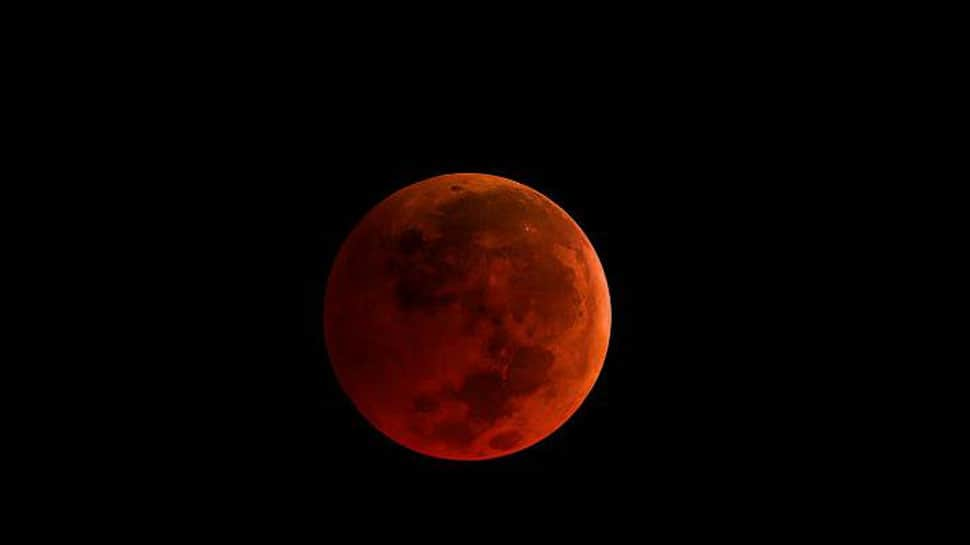New Delhi: One of the longest total lunar eclipses is about to take place on July 27, 2018. It will be on the intervening night of July 27 and 28 with a duration of 1 hour and 43 minutes, making it the longest total lunar eclipse of this century.
A lunar eclipse happens when the Moon passes directly behind Earth and into its shadow. During a total lunar eclipse, Earth blocks direct sunlight from reaching the Moon. The only light reflected from the lunar surface has been refracted by Earth's atmosphere. This light appears reddish. And that is why it's also known as the blood moon.
Lunar Eclipse and Solar Eclipse, referred to as Chandra Grahan and Surya Grahan respectively, hold special significance in the Hindu calendar. They are not mere changes in the positions of the celestial bodies. They have profound religious meanings too.
On January 31st, the world witnessed its first Lunar eclipse of the year where the moon appeared red in colour and much bigger in size. However, it was only visible in a few countries. It was the first time in 152 years, a supermoon, a blue moon and a blood moon coincided.
Now, on July 27, it will be once in a lifetime opportunity for stargazers to get a glimpse of the blood moon.
Where can Blood Moon be seen?
The blood moon 2018 will be seen in Eastern Hemisphere including Central Asia and Eastern Africa. In India, stargazers can watch it at its Penumbral phase (initial stage).
On July 27 the Sun and Mars will lie opposite to each other with Earth in the middle. This will result in Mars coming close to the Earth, causing it to appear brighter than normal and it will be seen from evening to dawn towards the end of July.
Timings of Total Lunar Eclipse:
It will be visible in New Delhi. The Penumbral Eclipse begins at 22.44 PM IST on July 27.
The partial eclipse of the Moon will begin at 23h 54m IST on July 27. The Moon will be gradually covered by the Earth’s shadow and the totality phase will begin at 1h 00m IST on July 28.
The total eclipse will last up to 2h 43m IST on 28 July.
Then the Moon will start to gradually come out of Earth’s shadow and partial eclipse will end at 3h 49m IST on July 28.
The eclipse will be visible in the regions covering Australia, Asia, Russia - except the northern part, Africa, Europe, east of South America and Antarctica. It will be visible in all parts of India.
















